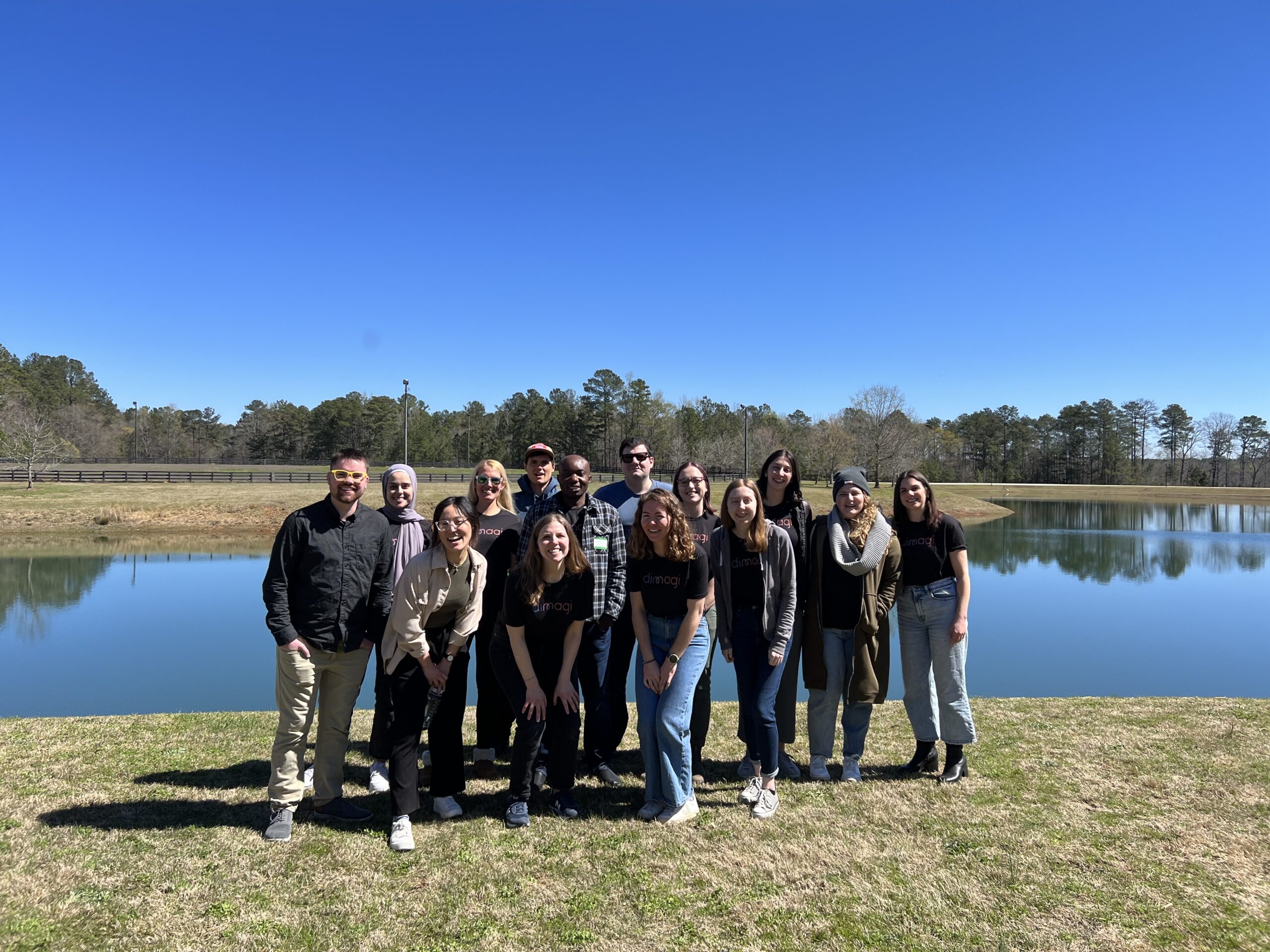Career Journey of Julia Fuller

Meet Julia Fuller: Julia has a background in community health and clinical psychology, currently pursuing a Masters in Public Health (MPH) while contributing to the innovative projects at Dimagi. In this engaging Q&A, Julia shares insights into her unique career path, the challenges she faced, and her advice for balancing work and studies.
Could you share a bit about your background and your path to Dimagi?
Absolutely! After my undergraduate degree, I stumbled into a recruiting job for a year before realizing my passion lay in public health. I discovered Dimagi on the Idealist job board, interviewed for a research assistant position, and got hooked on the exciting Small Business Innovation Research (SBIR) and National Institute of Health (NIH) projects led by Xian and Marin.
What made you switch to Project Management?
When COVID-19 hit, I was pulled into project management to contribute to Dimagi’s COVID-19 response efforts. It was a whirlwind introduction and my first foray into client-facing project management. It gave me a view into the real-world impact we can make with our product, and that was amazing.
You went back to school to get your Masters in Public Health (MPH) degree? Why come back to Dimagi?
Timing played a crucial role. With school going remote due to the pandemic and Dimagi deeply involved in these exciting and impactful COVID response projects, I couldn’t resist diving back in. Balancing school and work is a juggling act, but applying what I learn in real time has been incredibly rewarding. I also use the skills I learn at work to manage schoolwork and stay caught up.
What’s a typical day like in your current role?
My days involve a lot of coordination between partners, delivery teams, and tech teams. From gathering requirements to implementing applications, I act as an account manager, administrator, and overall strategy and operations support. Working with the Technical Project Manager and Solutions Architect, we streamline processes to keep projects on track and clients informed. It’s a dynamic role that keeps me on my toes.
What is the main difference between your current and previous role responsibilities?
On the RAD team, it was all about collecting data for research papers. The requirements were defined mainly by us based on feedback from participants in our usability studies. Now, on US Health projects, the focus is on meeting the needs of external partners and users, diving into the real world with applied solutions. It’s a shift from being our own partners to intense partner and relationship management.
Do you miss the research part? Would you go back to that kind of role?
Oh, my nerdy side misses writing papers and juggling multiple research projects. But the impact of the US Health projects, where you see tangible outcomes, is incredibly satisfying. I also enjoy working on a team instead of solo on projects. Ideally, I’d love to straddle both worlds.
What are some challenges you faced and lessons learned throughout this journey?
Balancing structured processes with efficiency was a learning curve. Transitioning from a smaller team with more ownership of projects to a structured project management environment required adapting to Agile methodologies. It requires being mindful of producing documentation that can be shared with others and is a constant learning process. The experience in a less structured environment does come in handy when faced with situations where you must think on your feet.
What support did you receive during your transition back to Dimagi?
Dimagi’s culture of mentorship and collaboration shone through. Colleagues with experience in scoping visits and documenting requirements were invaluable mentors. The templatized work by those who led the charge during the early days of the COVID response provided a solid foundation for subsequent projects. It’s been a journey of learning by doing. It allows me to continue to set stretch goals and learn new skills.
What do you like best about working at Dimagi, and what do you think could be improved?
I love the interesting projects and the supportive culture at Dimagi. It encourages everyone to bring their A-game while still having fun. The flexibility offered is real, and recognizing short-term efforts is a plus. However, there’s room for improvement in long-term recognition to foster lasting careers.
What do you like to do in your free time?
I’m an active soul—trail running, sailing, skiing, climbing. I cherish moments with my cats, Tofu and Couscous, and indulge in my love for reading, concerts, and cooking. I rarely have free time, and honestly, I wouldn’t have it any other way!
If you’re intrigued by Dimagi’s culture and want to join our dynamic team, explore opportunities on our Careers Page. We’re not just a workplace; we’re a community fostering impactful careers.
Share
Tags
Similar Articles
Dimagi to Exhibit and Host Advanced CommCare Training at ICT4D Conference 2024
Join Dimagi at ICT4D Conference 2024. Sign up for Advanced CommCare Training & engage in impactful discussions on digital development.
Staff Blog
February 22, 2024
CommCare Research Grant Awardee One Year Checkin: Move Up Global | Winner
Celebrate the one-year anniversary of the CommCare Grant for Frontline Research with insights from Move Up Global, the first-place winner, whose study in rural Rwanda focuses on non-biomedical parameters of neglected tropical diseases (NTDs) and malnutrition among school-aged children to improve diagnosis, management, and case surveillance through community health workers and schools.
Staff Blog
February 21, 2024
Design Thinking: Unleasing the Power of Empathy
Being mindful and aware of deep insights Applying creative thinking, discovering new sights Exploring the boundaries of realm of art With innovation and design, to create something from start Design thinking, this creative mission We open our minds, for a whole new vision Fostering our skills, to a wiser design Solving problems, more easily to
Staff Blog
January 25, 2024